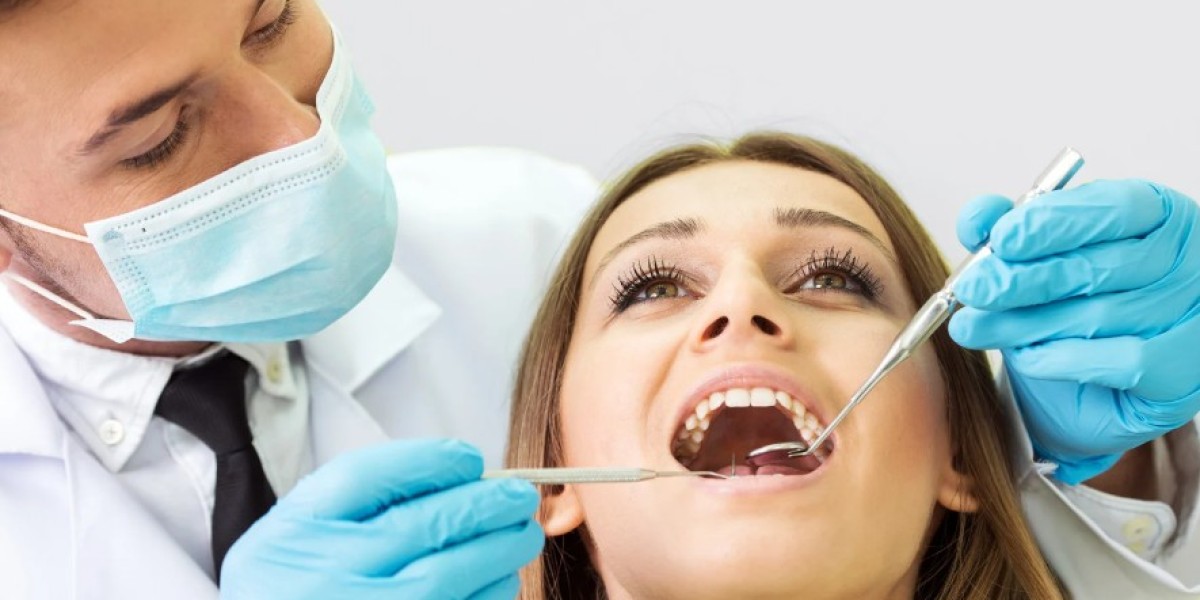Understanding the Importance of Oral Hygiene
Maintaining strong oral health goes beyond just brushing your teeth twice a day. Establishing consistent dental habits early on can prevent long-term dental problems, reduce the risk of gum disease, and keep your smile bright for years to come. Regular check-ups and preventive care play a crucial role in identifying issues before they become serious, ensuring both comfort and confidence in your daily life.
Role of a Dentist, Fairfax, VA, in Preventive Care
A Dentist, Fairfax, VA can guide patients through the essential steps of preventive care. From thorough cleanings to routine examinations, dental professionals help detect early signs of cavities, gum issues, or other oral complications. By incorporating personalized advice on brushing techniques, flossing habits, and diet adjustments, dentists empower patients to maintain strong teeth and healthy gums. Preventive care also includes guidance on managing habits such as teeth grinding, nail-biting, or excessive snacking, which can impact oral health over time.
Establishing Consistent Brushing and Flossing Habits
Brushing twice daily and flossing once daily remain the cornerstone of oral hygiene. Using fluoride toothpaste helps strengthen enamel and prevent decay, while gentle brushing techniques protect sensitive gums from irritation. Flossing removes plaque and food particles from areas that a toothbrush can’t reach, reducing the risk of cavities between teeth. Consistency is key; turning these routines into daily habits creates a lasting foundation for oral health.
The Impact of Diet on Oral Health
A balanced diet plays a significant role in preventing dental problems. Limiting sugary snacks and beverages helps reduce the risk of tooth decay, while foods rich in calcium, vitamins, and minerals strengthen teeth and bones. Drinking plenty of water aids in rinsing away food debris and maintaining saliva levels, which naturally protect teeth against harmful bacteria. Dentists often provide guidance on nutrition as part of preventive care, ensuring patients understand the link between diet and oral health.
Encouraging Regular Dental Check-Ups
Scheduling regular dental appointments ensures that any potential problems are caught early. Preventive care visits typically involve professional cleaning, oral examinations, and X-rays when necessary. These visits are not just about maintaining a clean smile—they are an opportunity for dentists to provide personalized advice, detect minor issues before they escalate, and educate patients on improving their daily dental routines. Families, in particular, benefit from consistent check-ups as children learn the value of oral care from an early age.
Promoting Positive Oral Habits in Children
Instilling good oral hygiene habits in children sets the stage for a lifetime of healthy teeth. Encouraging kids to brush and floss regularly, teaching proper techniques, and making dental visits enjoyable helps them associate oral care with positive experiences. Parents should also monitor habits such as thumb-sucking or prolonged pacifier use, which can affect tooth alignment. Engaging children with fun dental routines and explaining the importance of preventive care encourages responsibility and independence in managing their oral health.
Avoiding Harmful Habits
Certain habits, such as smoking, excessive alcohol consumption, and chewing on complex objects, can significantly damage teeth and gums. Dentists provide guidance on breaking these habits and offer strategies to minimize their impact. Avoiding harmful practices alongside maintaining consistent oral hygiene routines ensures long-term dental health and reduces the likelihood of complex procedures later in life.
FAQs
1. How often should I visit a dentist for preventive care?
It is generally recommended to schedule dental check-ups every six months, although your dentist may suggest more frequent visits based on individual needs.
2. What is the best way to brush my teeth effectively?
Use a soft-bristled toothbrush and fluoride toothpaste, brushing in gentle circular motions for at least two minutes, covering all surfaces of your teeth.
3. Can diet really affect my oral health?
Yes, consuming a diet high in sugar and acidic foods can lead to tooth decay, while foods rich in calcium and vitamins strengthen teeth and gums.
4. When should children start visiting a dentist?
Children should visit a dentist by their first birthday or within six months of getting their first tooth to establish early preventive care habits.
5. Is flossing really necessary if I brush twice a day?
Absolutely. Flossing removes plaque and debris from between teeth, areas a toothbrush cannot reach, preventing cavities and gum disease.
6. Can preventive care help avoid expensive dental treatments?
Yes, regular preventive care helps detect and address issues early, often avoiding more invasive and costly procedures in the future.
Naturadent, P.C. / DON KANG, DMD.
9508A Lee Hwy, Fairfax,
VA 22031, United States
+17036524265






